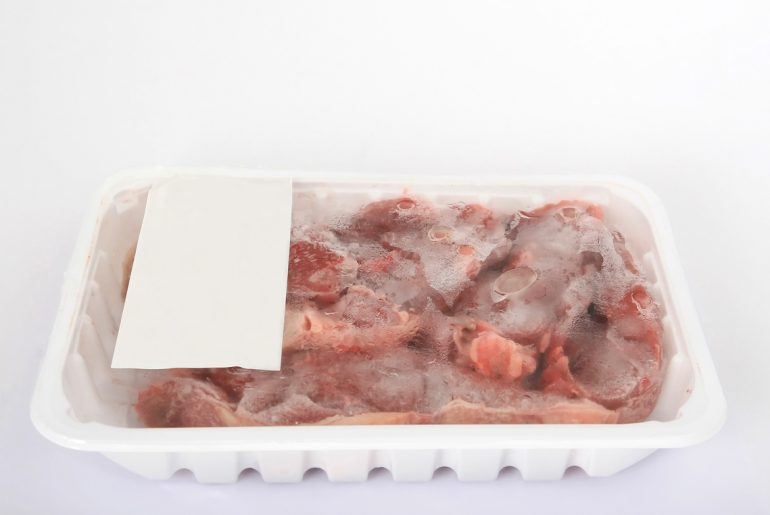We’ve all been there — the intention to cook a nice chicken breast for dinner only to realize we’ve forgotten to defrost. Rather than looking for an alternative, we attempt to speed up the process by tossing the meat in the microwave instead.
So what’s the big deal?
Well, defrosting at those warm temperatures puts you at serious risk of eating dangerous levels of bacteria. Yikes!
According to Professor Costa Stathopoulos from Abertay University, defrosting meat in the microwave “is really not the best of techniques.”
Stathopoulos appeared on BBC Two’s Inside the Factory earlier this month and showed the difference between turkey meat that had been defrosted in the fridge versus turkey meat defrosted on the counter. The latter had twice the amount of harmful bacteria, including ecoli microorganisms. And that’s not even considering the warm temps the meat reaches in the microwave.
Cold temperatures slow down bacterial growth, so your chance of an upset stomach (or worse) is reduced when defrosting is done properly, but according to the USDA, as soon as foods become warmer than 40ºF, bacteria that may have been present before freezing can begin to multiply. This is why it’s important to keep food — defrosting or otherwise — in the refrigerator.
If you are short on time and really those pork chops right now, Stathopoulos says the manufacturer’s guidelines must be followed. This includes using proper defrost settings as well as any instructions given on the food packaging itself. Typically defrost settings, or 50% power, will ensure that the food doesn’t cook when you’re intending to just defrost. Stirring or flipping often is usually recommended.
Whatever you do, refreezing microwaved or room temperature thawed food is never a good idea. Stathopoulos showed viewers petri dishes containing shocking amounts of bacteria on re-frozen food. Co-presenter on Inside the Factory, Cherry Healey explained, “Overtime you defrost food, the bacteria multiples. If you refreeze it, you’re also freezing more bacteria.”
Things to keep in mind when defrosting
- Some areas of your refrigerator may keep food colder than other areas, so make a mental note if you’re surprised to find your food still frozen after a full day.
- Planning ahead is key to thawing food because a lengthy amount of time is involved.
- A large frozen item like a turkey could take several days to fully thaw (about 24 hours for every 5 pounds of meat). But even smaller amounts of food like a package of ground meat or boneless chicken breasts can take up to a day to defrost without introducing risk of bacteria.
- Always place defrosting meat in a dish and place on the bottom shelf of the fridge. This will catch the juices and prevent them from contaminating other foods.
(h/t Daily Mail)
Also see, Can you still eat freezer burned foods?




